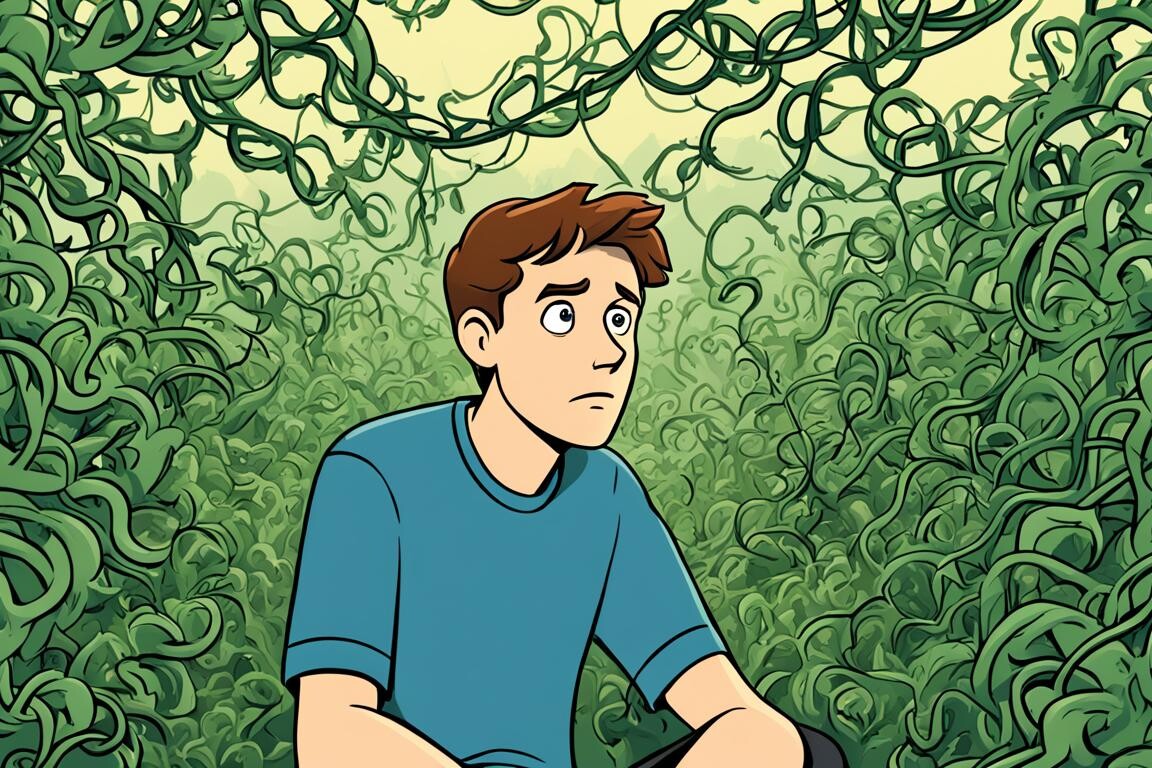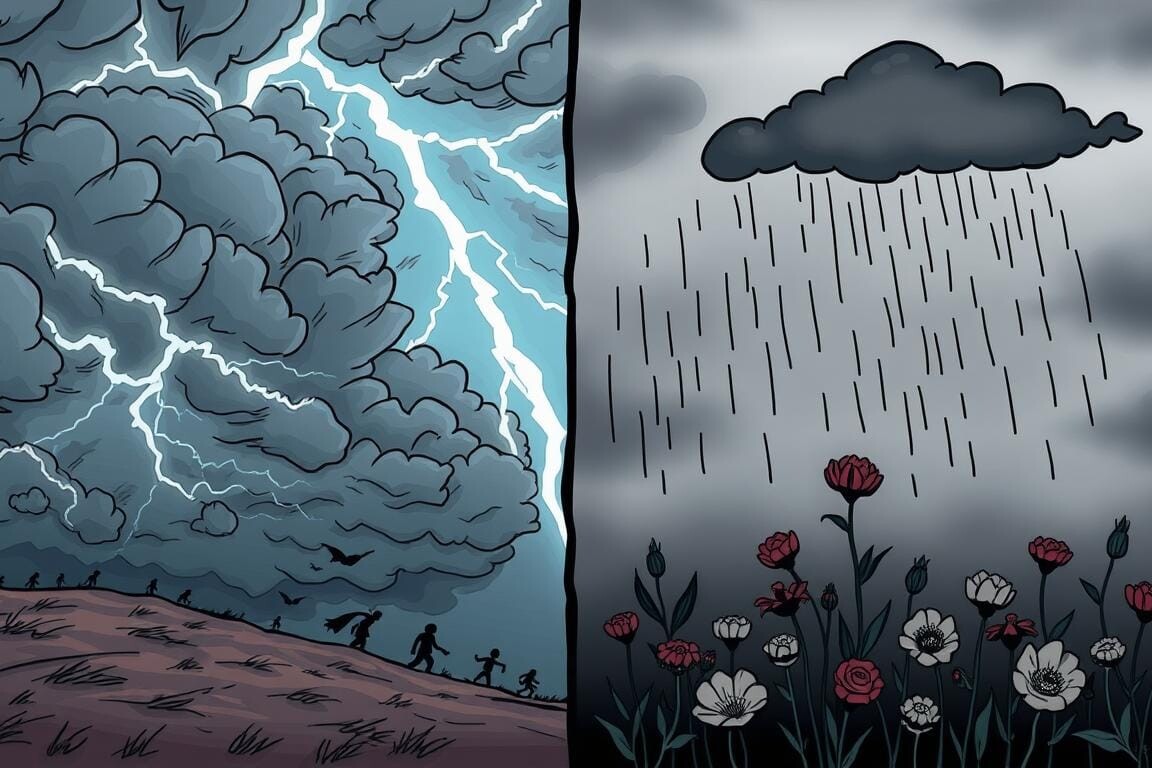As parents, we face the challenge of helping our kids with their feelings. Anxiety is a big concern for many young ones. It’s normal for kids to feel worried or anxious sometimes. But, it’s important to know when these feelings start to get in the way of their daily life.
Anxiety in kids can show up in many ways. This includes physical signs like stomachaches and headaches, or changes in behavior like avoiding things or having big tantrums. We’ll look into the signs and symptoms of anxiety in kids. This will give you a checklist to spot these issues early.
Knowing the signs of anxiety in kids helps us support them better. We can find the right help for them. Let’s start this journey together. We’ll learn to recognize and deal with anxiety symptoms. This will help you as a parent to care for your child’s feelings.
Table of Contents
ToggleUnderstanding Childhood Anxiety
Anxiety is a natural way our bodies react to changes. But for some kids, it can become too much, impacting their daily life. It’s important to understand what is childhood anxiety to help them cope.
What is Anxiety and Why it Occurs in Children
Feeling worried or anxious sometimes is normal. But if it’s severe or stops a child from doing daily activities, it might be an anxiety disorder. These disorders start as kids get better at thinking and understanding the world. Separation anxiety often starts early, and social anxiety disorder comes later, after puberty.
Many things can make kids anxious, like stressful events or a family history of anxiety. Knowing the signs and reasons can help us support kids with their anxiety.
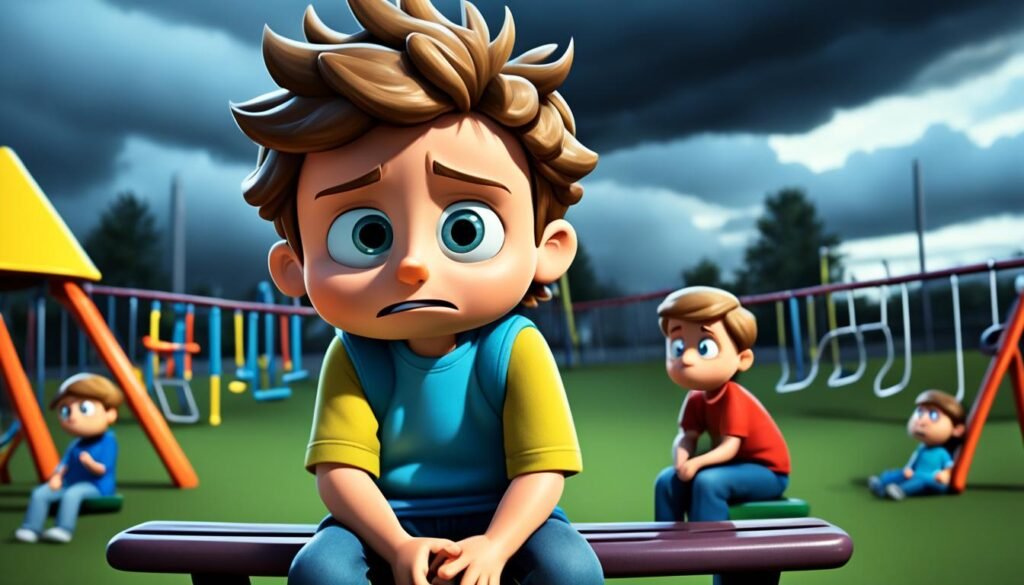
- Occasional worry or anxiety is a normal response
- Severe or long-lasting anxiety that affects daily life may be an anxiety disorder
- Anxiety disorders are cognitive and develop as a child’s cognitive ability develops
- Separation anxiety often develops early in childhood, while social anxiety disorder usually emerges after puberty
- Triggers, stressors, and inherited tendencies can contribute to childhood anxiety
Common Signs and Symptoms
It’s key to spot the signs of anxiety in kids to help them. As parents, we must watch for these signs early. This can lead to getting help quickly and improving our children’s lives.
One big sign of anxiety in kids is trouble focusing. They might struggle with schoolwork, hobbies, or even talking. They could also have trouble sleeping, like not falling asleep or having scary dreams.
Another sign is changes in how much they eat. Kids with anxiety might eat more or less than usual. They might also burst into tears easily or cry a lot. They could feel tense, restless, or complain of physical problems too.
- Difficulty concentrating
- Disrupted sleep patterns
- Changes in appetite
- Sudden emotional outbursts
- Physical symptoms (e.g., muscle tension, restlessness, physical complaints)
Every child shows anxiety differently. By paying attention to our child’s feelings and actions, we can spot the signs. Then, we can help them in the right way.
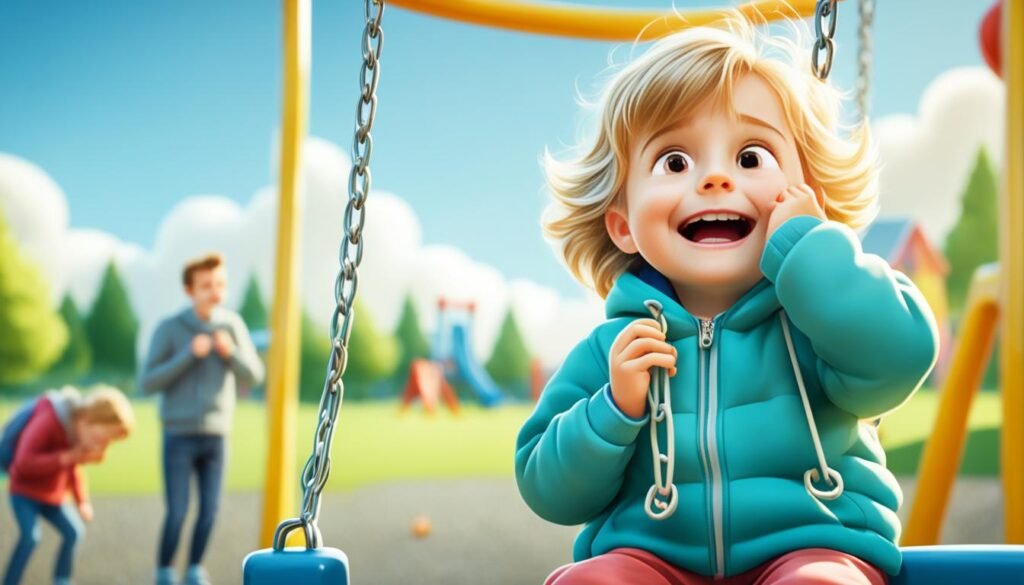
Anxiety symptoms in children
As parents, knowing the signs of anxiety in children is key. These signs help us understand how our kids are feeling and spot issues early. Let’s look at the common signs of anxiety in kids.
Difficulty concentrating is a big sign of anxiety in children. They might find it hard to focus on schoolwork or finish tasks. Trouble sleeping is another sign, with kids having a hard time falling asleep or staying calm at night.
Changes in eating habits, like eating more or less, can show anxiety. Emotional outbursts, like frequent tantrums or being easily irritated, are also signs.
Constant worrying or negative thoughts are signs too. Physical symptoms like stomachaches and feeling tense or fidgety are also clues. Some kids might become clingy or avoid activities they used to enjoy.
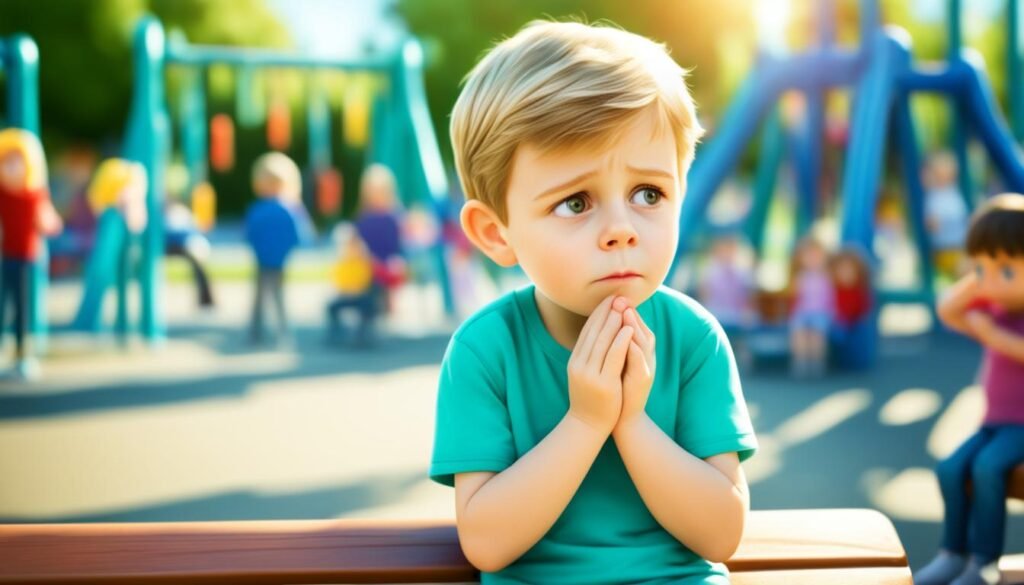
Remember, every child is different, and anxiety can show in many ways. By watching your child’s behavior and feelings closely, you can spot anxiety signs. This helps you support their mental health early.
Age-Specific Manifestations
As kids grow, their anxiety shows up in different ways based on their age and stage of development. It’s important for parents to know these signs to help their kids with anxiety.
Separation Anxiety in Young Children
Separation anxiety is common in young kids, happening between 6 months and 3 years old. These kids feel anxious when away from their main caregivers. They might cry, cling, or not want to be alone. This makes things like daycare or leaving for work hard for kids and parents.
Social Anxiety in Older Children and Teens
When kids get older, they might feel more social anxiety. They could feel too self-conscious, worry about being judged, or avoid being around others. This can stop them from making friends, joining in class, or doing fun activities outside school.
Anxiety issues often get worse as kids get older. They start to think more and develop anxiety as they get smarter. Separation anxiety starts early, but social anxiety usually comes after puberty.
Knowing how anxiety shows up at different ages helps parents understand their kids better. They can then give the right support and help manage anxiety in kids, including separation and social anxiety.
When to Seek Professional Help
As parents, knowing when your child’s anxiety needs more than just self-help is key. If their anxiety isn’t getting better or is getting worse, it’s time to look for professional help. This is especially true if it’s impacting their daily life.
Signs that show your child needs professional help include:
- Severe, frequent, or ongoing anxiety symptoms that interfere with your child’s daily activities and routines
- Avoidance of situations or activities that provoke anxiety
- Difficulty managing anxiety through self-help techniques like relaxation, mindfulness, or coping strategies
Studies show that up to 80% of children with anxiety don’t get the help they need. Without treatment, anxiety can lead to poor coping skills, lower self-esteem, academic struggles, and a higher risk of depression. Getting professional help can help your child develop healthy ways to cope and improve their well-being.
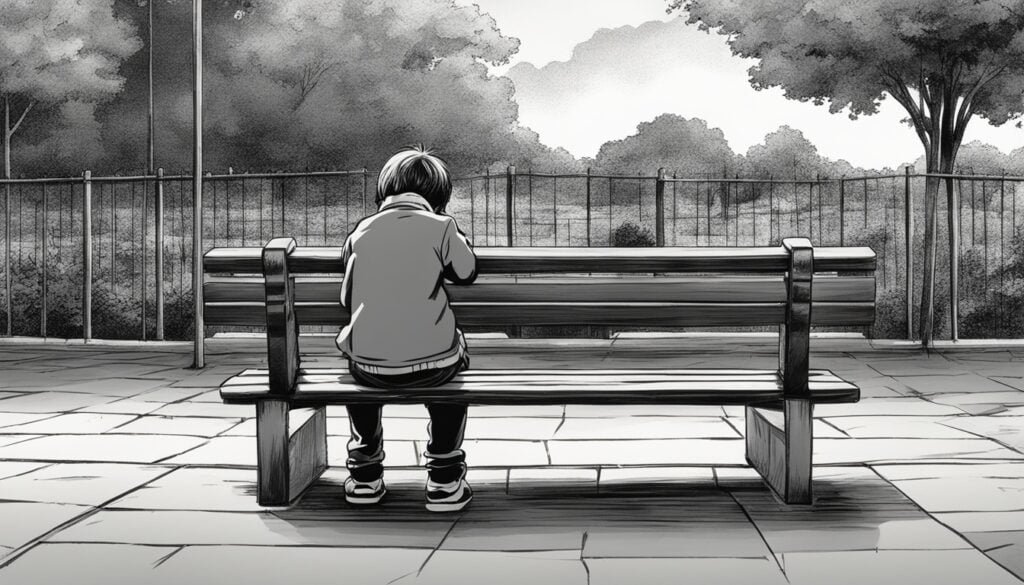
A mental health professional, like a child therapist or counselor, can give a detailed assessment and create a treatment plan for your child. This might include cognitive-behavioral therapy, medication, or a mix of both. With the right support, your child can learn to handle their anxiety and do well.
Supporting Your Anxious Child at Home
Raising an anxious child can be tough, but there are ways to help at home. By learning how to manage anxiety and making a caring home, we can help our kids deal with their worries. This way, they can feel better and do well.
Strategies for Managing Anxiety
Helping an anxious child means talking openly with them. We start by discussing their feelings, understanding their worries, and finding ways to cope together. Slowly introducing them to what scares them, while being there for support, helps a lot in facing their fears.
We can also teach our kids healthy ways to deal with anxiety, like deep breathing, mindfulness, and calming activities like reading or drawing. Giving them these tools helps them handle their anxiety in a good way.
Creating a Supportive Environment
It’s key to have a calm and caring home for an anxious child. We can achieve this by having regular routines, reducing stress, and having fun family time. Encouraging our child to talk about their feelings and listening with care helps them feel seen and supported.
We shouldn’t avoid things that make our child anxious, as it can make their fears worse. Instead, we can face these situations together, offering support and reassurance.
By using these strategies and making a supportive home, we can help our anxious children grow strong and learn to cope well.
Treatment Options for Childhood Anxiety
There are many ways to help children with anxiety. The best treatment depends on the child’s age and the reasons for their anxiety. Our experts have looked into the latest research to give you a full list of the best therapies for kids with anxiety.
Cognitive-behavioral therapy (CBT) is a top choice for kids with anxiety. It helps them spot and fight negative thoughts that make them anxious. It also teaches them how to handle their feelings better. Many studies show that CBT really works for kids of all ages.
- Cognitive-Behavioral Therapy (CBT)
- Counseling and Psychotherapy
- Medication (in some cases)
- Online Anxiety Treatment Programs
For kids with very bad or ongoing anxiety, a doctor might suggest medication. But, it’s usually given along with other treatments like CBT. This way, kids get a full treatment plan.
Online anxiety treatment programs are great for families who can’t easily get to in-person therapy. These programs use CBT methods. They’re a good and easy way to help kids with anxiety and other anxiety-related issues.
So, there are many good ways to help kids with anxiety. By working with a mental health expert, parents can find a treatment plan that fits their child’s needs. This helps kids deal with their anxiety better.
Coping with Parental Anxiety
As parents, we know how anxiety can change our lives. But did you know it can also affect our kids? Studies show that when parents have anxiety, their kids are more likely to have it too.
Not dealing with anxiety can make us poor at coping and increase our kids’ risk of anxiety. It’s important for us to look after our mental health and get help when we need it. By managing our anxiety, we make a better home for our kids.
Tips for Coping with Parental Anxiety
- Practice self-care activities, such as exercise, meditation, or journaling, to manage your own anxiety levels.
- Seek professional help, such as therapy or counseling, to develop healthy coping strategies.
- Communicate openly with your child about your feelings and teach them healthy ways to manage their own anxiety.
- Encourage your child to express their emotions and validate their feelings, rather than dismissing them.
- Create a calm, structured, and predictable home environment to help your child feel secure.
Remember, looking after our mental health helps our kids too. By dealing with our anxiety, we make a positive space for our kids to grow.
Conclusion
It’s very important to spot and deal with anxiety in kids. It can really change their daily life and growth. Kids can show anxiety in many ways, like physical signs or changes in how they act. Parents need to know the usual signs and symptoms.
Sometimes, kids feel anxious and it’s okay. But if it keeps happening or is very bad, they might need help from a professional. By understanding childhood anxiety, supporting them at home, and getting help when needed, we can help our kids deal with their anxiety. This helps them do well in life and stay happy.
Here are the main points on helping kids with anxiety: watch for the usual signs, make home a safe place, and get expert help if needed. Doing these things helps our kids face their anxiety and do well in school and life.
FAQ
What are the common signs and symptoms of anxiety in children?
Children with anxiety might find it hard to focus and sleep well. They might eat more or less than usual. They could get angry or irritable quickly and worry a lot.
They might feel tense and fidgety, cry a lot, be clingy, and complain of physical symptoms like tummy aches.
How can anxiety in children manifest differently at different ages?
Younger kids often show separation anxiety. Older kids and teens worry more about school or social situations. Anxiety starts to show as kids get better at thinking.
Separation anxiety is common in the early years. Social anxiety usually starts after puberty.
When should parents seek professional help for a child’s anxiety?
Get help if your child’s anxiety doesn’t get better or gets worse. If self-help doesn’t work, or if it affects school, family, or friends. Seek help if it’s severe, frequent, or stops them from doing daily activities.
What are some effective strategies for supporting an anxious child at home?
Talk to your child about their anxiety. Slowly expose them to what scares them. Help them find ways to cope.
Encourage them to share their feelings. Make a plan for managing anxiety. Spend time on fun activities and keep routines healthy.
What are the common treatment options for childhood anxiety?
Treatments include counseling, cognitive-behavioral therapy (CBT), and sometimes medication. Online programs can also help. CBT is very effective, and professional help can greatly improve a child’s life.
How can parental anxiety affect a child’s anxiety?
If parents are anxious, it can make their child more likely to be anxious too. It’s crucial for anxious parents to seek help. Untreated anxiety in parents can lead to poor coping skills and more anxiety in kids.
Source Links
About The Author

Medically reviewed by Dr. Chandril Chugh, MD, DM (Neurology)
Board-Certified Neurologist
Dr. Chandril Chugh is a U.S.-trained, board-certified neurologist with expertise in diagnosing and managing neurological disorders, including migraines, epilepsy, Parkinson’s disease, and movement disorders. His clinical focus includes evidence-based neurological care and patient education.
All content is reviewed for medical accuracy and aligned with current neurological guidelines.


